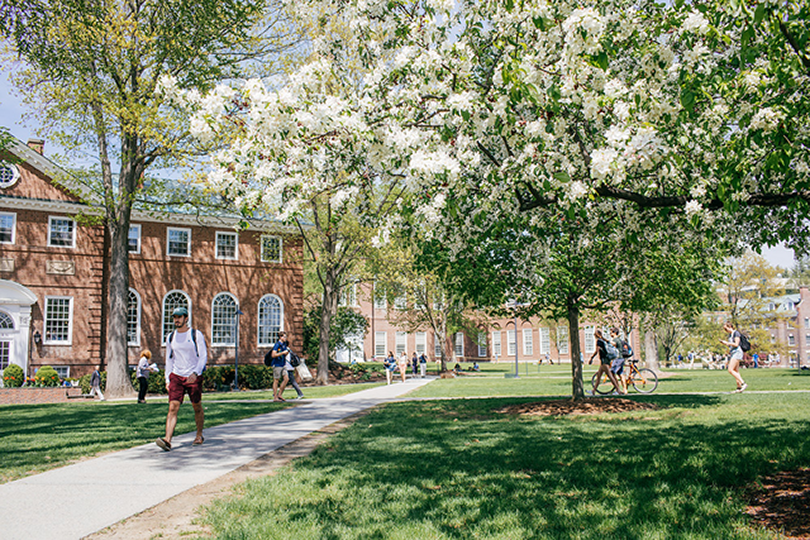Science Study Strategies
In high school, most students were used to receiving homework assignments and knowing explicitly what to study and how to prepare for exams. However, your Dartmouth science courses will be different – you’ll be much more independent. For some of you, this change will be easy and may even resemble how you’ve come to learn already. For most of you, there may be a learning curve in figuring out the best study and learning strategies for you!
BE CURIOUS! Learning is an ongoing process, and one of the great gifts of attending a great school like Dartmouth is the opportunity to expand your parameters. You will grow intellectually and personally, and that is what you came to do!
Expanding your cognitive skills is like expanding any other skill - you need to practice and repeat new skills to develop strength until the new skills become natural.
What are some differences between your high school and college class experience?
- Your professors will let you know when exams will be at the beginning of the term, but there will rarely be explicit homework (unless you are required to watch a video of the class lecture ahead of time so that the class time is used for problem-solving). Only the lab portion of your courses will have assignments with due dates.
- It will now be up to you to be an independent learner! You’ll need to learn how to plan for daily reviewing and practicing the material you are learning. Then, by the time you have an exam, you’ve integrated the material (vs “cramming” a couple of days). You might need new time management strategies, review strategies, and practice strategies! Over time most of you will also benefit from finding some study buddies to work with and review material with!
In the past, most of you were told what you needed to learn and study for and were provided specific homework assignments that helped you review. You memorized that information and showed you had memorized it on your exams. In your Dartmouth science courses, you will need to memorize the material, but also learn how to APPLY the new knowledge. Your exams will provide scenarios and problems and you will utilize what you’ve learned to solve them. You will learn to ask yourself meaningful questions to “test” your understanding as part of your study process.
Learn more about study strategies from your peers!
There are resources on campus to help you learn new strategies!
- Attend your professor’s office hours. We suggest putting them in your schedule! You can also ask to meet them one-on-one.
- Study with your peers!
- Meet with Teaching Science Fellows (TSFs) who support introductory pre-health courses in biology and chemistry. They provide review sessions and one-on-one coaching sessions (even if you aren’t in one of the classes they are assigned to in a given term).
- Use the Academic Skills Center! They provide individual academic coaching to identify study strategies, improve time management and study behaviors, and develop action steps to support your academic journey. They also provide opportunities for peer tutoring and academic skills workshops.
- Reach out to the Learning Fellows. Learning Fellows are talented Dartmouth undergraduates interested in teaching and education who work directly with Dartmouth professors to help facilitate group problem solving sessions, lead small group discussions, provide academic support to their peers during lectures and labs, and promote deeper engagement with course material.
- Connect with the Pre-Health Peer Mentors! The Pre-Health Peer Mentors are trained, upper-class students who assist you by sharing their experiences and by offering suggestions and support. They're happy to share advice on how to improve your study strategies and skills!
- Your Pre-Health Assistant Deans are also happy to discuss study strategies and tips that may help you to succeed!
BE PROACTIVE! Dartmouth's terms move quickly and are very full, so if you discover that your study strategies are no longer sufficient, think about what you can do differently as soon as possible.
New skills can take time to learn. If you need to revise your study strategies, keep at it and try things until you find the right blend of strategies for you.

Peer Advice
Watch advice and strategy videos from students who have been through the application process.